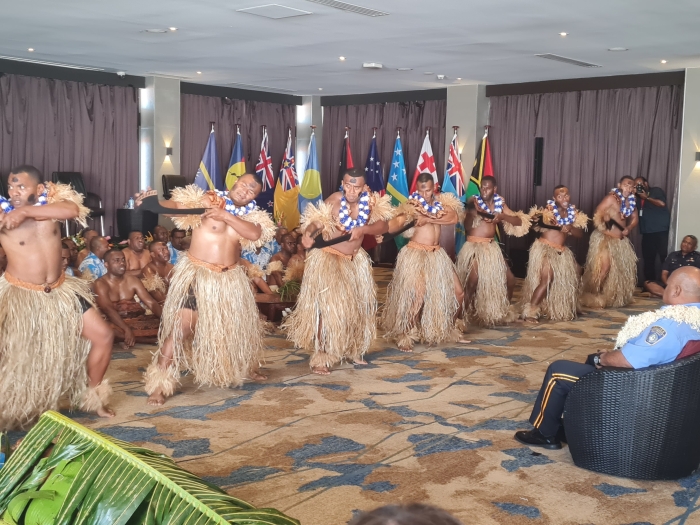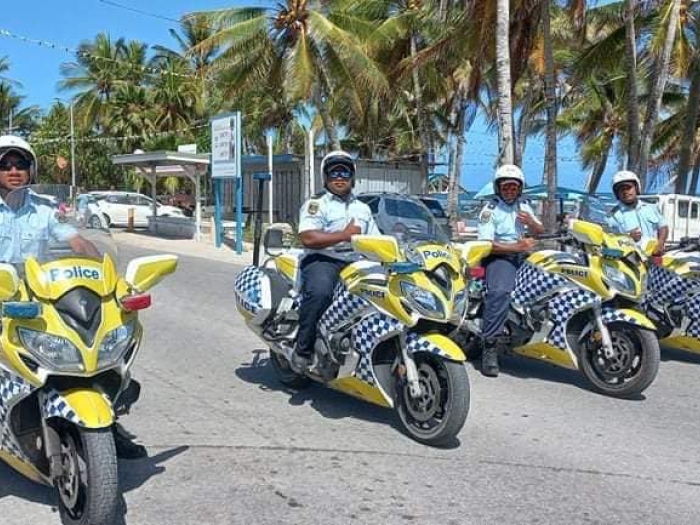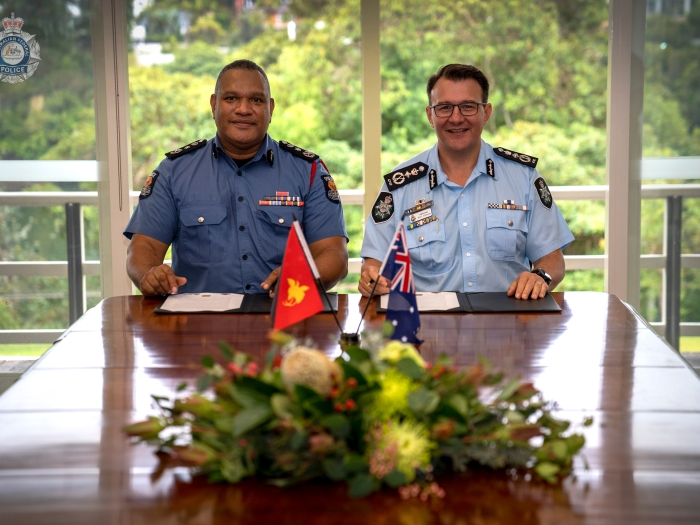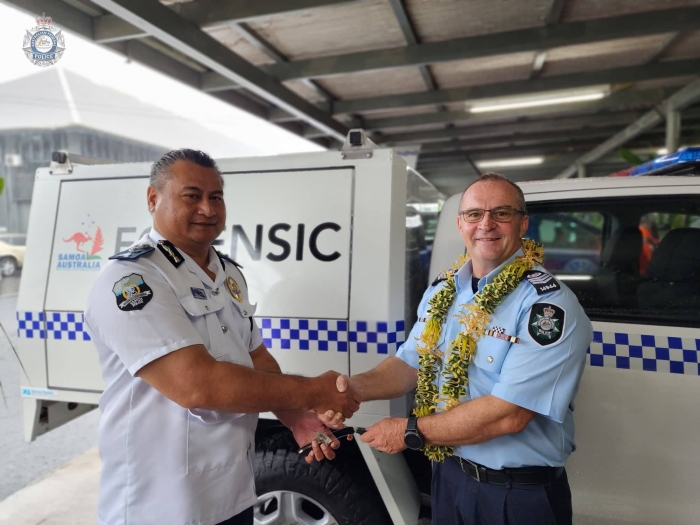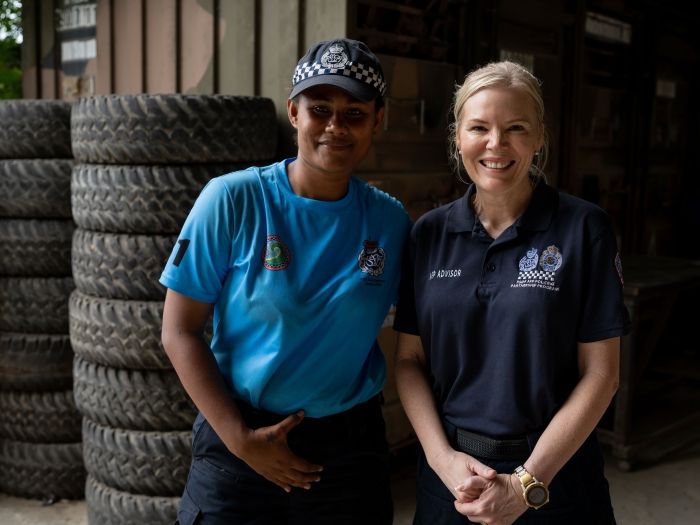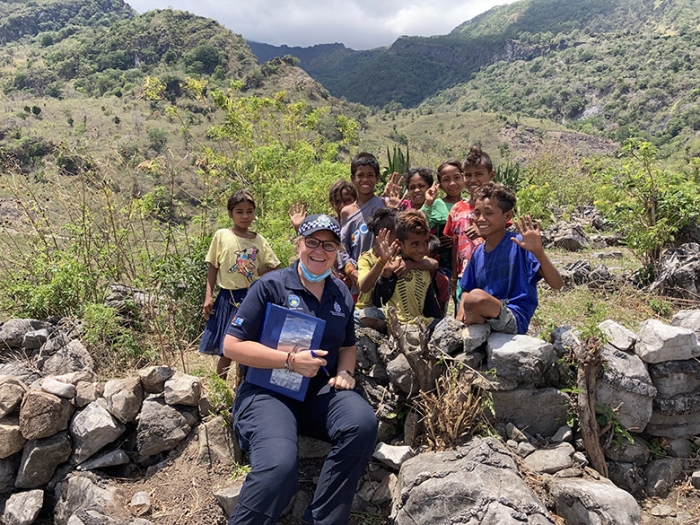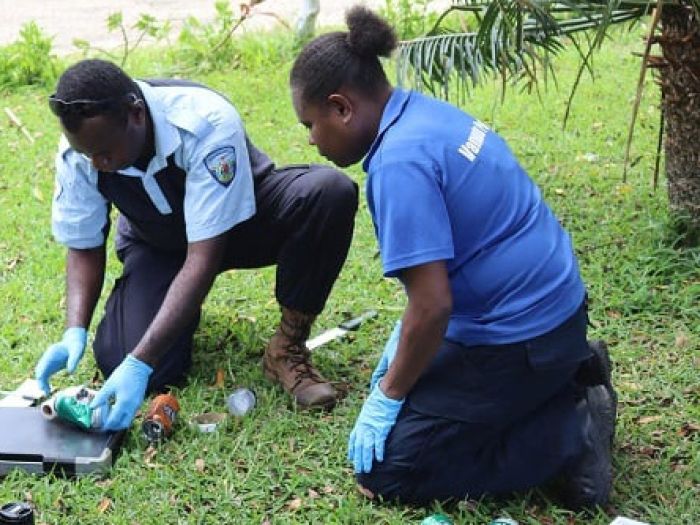Our reach in the Pacific spans across over 20 countries. In addition to those countries listed below we also provide support to police forces and communities across the Pacific Islands Chiefs of Police.
Our primary focus in the Pacific is promoting regional stability, maintaining the rule of law and working closely with our Pacific partners. With over 100 AFP members located across the Pacific, we work directly with local law enforcement to combat crime and provide specialist policing training, equipment and education.
Our members live in and are committed to the communities they serve. We provide expertise and capability development to our Pacific partners through our programs and on ground support.
Established in 2002, the Pacific Transnational Crime Network (PTCN) is a mandated program under the Pacific Island Chiefs of Police (PICP) that provides a proactive intelligence and investigative network to combat transnational serious and organised crime in the Pacific. It uses a multi-agency and regional approach to target transnational crime, including police, immigration, customs and other law enforcement and border agencies.
It consists of 29 Transnational Crime Units (TCUs) located in 21 Pacific Island countries.
The network operates in a ‘hub and spoke’ environment with the Pacific Transnational Crime Coordination Centre (PTCCC), located in Samoa, coordinating and analysing all information received from TCUs across the network. The PTCCC was established in 2004 and is funded by the AFP.
The AFP supports the PTCN through the deployment of dedicated advisors in Samoa, Fiji, Papua New Guinea and Vanuatu and with the assistance of partnership advisors in the Solomon Islands, Nauru, and Tonga . We also provide the Secretariat, based in Canberra, which provides support and assistance to the TCUs.
Launched by the AFP, New Zealand Police, Fiji Police Force and Tonga Police in 2019, the Transnational Serious Organised Crime (TSOC) Pacific Taskforce combats serious and organised crime impacting the Pacific. It also coordinates approved TSOC investigations and disruption activities within the Pacific.
The Pacific Police Development Program - Regional (PPDP-R) provides operational support and delivers capability development initiatives through a range of mechanisms, including:
- Pacific Community for Law Enforcement Cooperation (PCLEC) - a regional coordination and de-confliction mechanism that supports capability development in law enforcement priority areas identified by the Pacific Island Chiefs of Police (PICP).
- Pacific Forensics Working Group (PFWG) - a PICP forum facilitated by the AFP for sharing information regarding forensic training and building regional capability.
- Pacific Police Training Advisory Group (PPTAG) - a PICP working group facilitated by the AFP to provide advice on training related matters.
- Pacific Police Policy Network (3PN) – a forum that is supported by the AFP and Australian Attorney-General’s Department and provides the opportunity for Pacific policy practitioners to be part of a network to share expertise, improving their capabilities in the identification, development and implementation of strategic policies for their organisation. The 3PN does not fall within the remit of the PICP.
- PICP Women’s Advisory Network (WAN) - supported by the PICP-Secretariat.
The PPDP-R also facilitates Cyber Safety Pasifika (CSP). CSP is jointly funded by the AFP and the Department of Foreign Affairs and Trade to deliver various activities to assist Pacific police partners in the areas of:
- cyber safety awareness and education
- cybercrime investigations skills
- cybercrime legislation and policy development.
It also helps establish networks between local law enforcement, social media companies and other agencies.
The Law Enforcement Cooperation Program (LECP) aims to strengthen the capability of Pacific police and law enforcement agencies through provision of specialist policing training, equipment and education.
The program broadens existing support delivered through our bilateral partnership programs and the existing AFP-administered Pacific Community for Law Enforcement Cooperation (PCLEC) framework.


